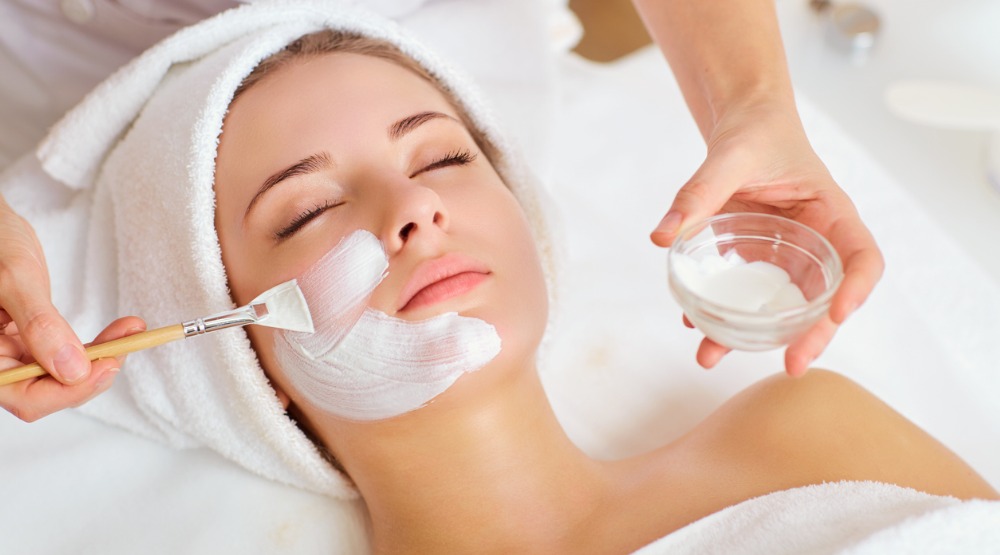Rosacea is a chronic inflammatory skin condition that’s incredibly common in Australia. The Mayo Clinic in the United States defines it as “a common skin condition that causes redness and visible blood vessels in your face. It may also produce small, red, pus-filled bumps. These signs and symptoms may flare up for weeks to months and then go away for a while…. The cause of rosacea is unknown, but it could be due to a combination of hereditary and environmental factors. Rosacea is not caused by poor hygiene. A number of factors can trigger flare-ups.”
A common trigger for many sufferers? Cold, dry winter weather. So get ahead of the flare-ups this fall and winter, with an ounce of prevention. Eisner created and formulated QED Skincare specifically for sensitive skin (starting with her own!), and with a background as a pharmacist, she knows what works and what does. Here’s what she has to say about how professionals can care for clients with rosacea this winter, and how clients can continue to take care of their skin post treatment.
Do a thorough consult before any treatment. Ask them if they know what triggers their rosacea
“Is heat one of the client’s triggers? Be careful with steam. Obviously, avoid any ingredients which they have sensitivities to.”
Do not use products on broken skin
“If it is a small area, you can just avoid it. If a large area of the skin is in a terrible state, don’t do any facial treatments. You will end up with a very unhappy customer. If their skin is really bad, send them to see their GP. They will respect your professionalism.”
Always patch test skincare products
“And only on non-irritated skin. Irritated skin is irritated and will always react. Don’t bug irritated skin (or people). Invite someone with sensitivities to patch-test the products you will use a few days before the treatment.”
Try to minimise water use in a treatment
“Water is ironically very dehydrating when applied to skin, so minimise water use, wherever possible. Avoid water which is either too hot or too cold. Lukewarm water will minimise flare-ups. Even better, use products that don’t require water.”
Be gentle with rosacea-affected skin
“Always apply products with a delicate touch. And use very soft cloths and cotton. Likewise look for gentle, spherical exfoliants like jojoba beads and apply gently.”
Use skincare products which are suitable for Sensitive skin
“Avoid irritating ingredients and fragrance in the products you use in the treatment. Look for supportive, long-lasting ingredients, like jojoba oil, shea butter, rosehip oil, etc.”
MOISTURISE, MOISTURISE, MOISTURISE
“Offer treatments with a big focus on pushing in as much moisture as possible. In rosacea, like all skin sensitivities, prevention is the best cure. So now as we head into autumn, this is the time to amp up the hydration. The more settled your customer’s skin is in autumn, the fewer rosacea flares they are likely to get when things get cold.”
Last, suggest they book monthly for the duration of winter for follow-up treatments!
—

HOW CLIENTS CAN MANAGE ROSACEA WITH AFTERCARE
Moisturise well and often
“The right moisturiser is not purely cosmetic for rosacea sufferers. The secret to preventing rosacea flares and speeding their healing is to maximise hydration. Double your moisturiser use and you will see a dramatic reduction in flare-ups. A great tip is to keep a moisturiser and a bottle of water in your handbag. Increase your hydration at the first signs of a flare-up.”
Avoid washing your face with too hot or too cold water
“Use water that is just right! (Goldilocks was a genius.) Even better, use products that don’t require water, as it can be stripping.”
For relief of an angry, red flare, an ice pack in a cloth can really help.
Be gentle with rosacea-affected skin
“Always apply products with a delicate touch. And use very soft cloths and cotton. Likewise look for gentle, spherical exfoliants like jojoba beads and apply gently.”
Sometimes, you may need to see a doctor
“Some cases respond very well to antibiotic creams and other prescription products.”
April is Rosacea Awareness Month.
—
Read the current issue of our digital magazine here:
For more news and updates, subscribe to our weekly newsletter.

